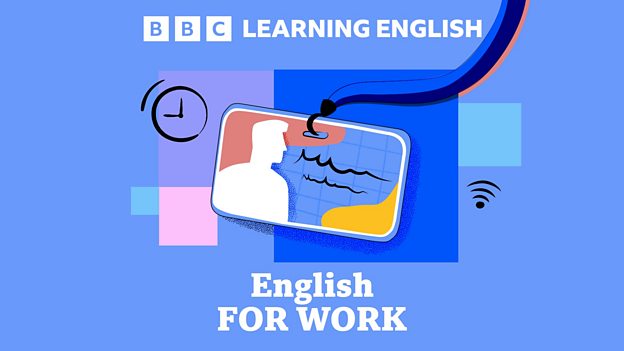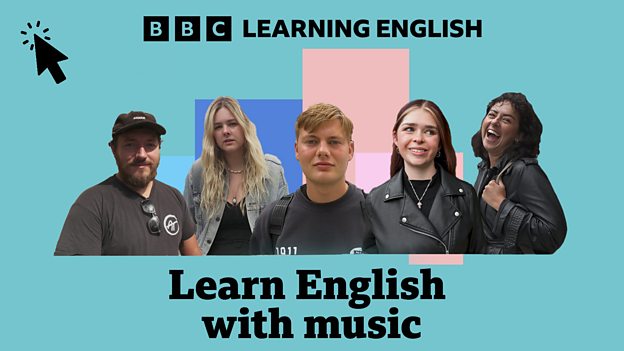6 Minute English
Intermediate level
Preserving traditional recipes
Episode 220707 / 07 Jul 2022

Introduction
Some dishes have the taste of our childhood. Cooking is not only about nutrition, but also about culture. But some traditional recipes are being lost. We talk about one woman’s quest to preserve the food culture of her native Ghana in west Africa, and teach you related vocabulary along the way.
This week's question
Bangers and mash is a classic British dish. It’s easy to understand why mashed potato is called ‘mash’ - but how did sausages come to be known as ‘bangers’?
a) because ‘bang’ is an old-fashioned word for pork
b) because sausage-making machines used to make a banging noise
c) because sausages would explode in the frying pan, going ‘bang’
Listen to the programme to find out the answer.
Vocabulary
bangers and mash
(informal) sausages (bangers) and mashed potato, a common British meal
mortar and pestle
cooking equipment made up of a bowl (the mortar), and a heavy stone (the pestle) which is used to grind and pound ingredients together
pound
crush into a paste or powder
taken aback
feel shocked and surprised
know-how
the practical skills and knowledge of how to do something
document
record information about something by writing about it or taking photos of it
Transcript
Note: This is not a word-for-word transcript.
Sam
Hello. This is 6 Minute English from BBC Learning English. I’m Sam.
Rob
And I’m Rob. Now, all over the world people love to eat, and most of us have favourite food we like to cook. Often, this involves a recipe – that’s written down instructions explaining how you combine the different items of food you are going to cook - the ingredients – into a meal. My favourite recipe is for bangers and mash - a cheap and popular British meal made of sausage and mashed potato.
Sam
Cooking is a big part of our lives, something pleasurable we do with others, and a way of discovering the flavours and tastes of other cultures.
Rob
In this programme, we’ll be doing just that – discovering the food culture of Ghana in west Africa, and hearing about one woman’s quest to preserve her country’s traditional recipes. And, as usual, we’ll be learning some related vocabulary along the way.
Sam
But before we start, I have a question for you, Rob. Your favourite recipe is the classic British dish, bangers and mash. It’s easy to understand why mashed potato is called ‘mash’ - but how did sausages come to be known as ‘bangers’? Is it:
a) because ‘bang’ is an old-fashioned word for pork?
b) because sausage-making machines used to make a banging noise? or
c) because sausages would explode in the frying pan, going ‘bang’?
Rob
I think it’s a) – ‘bang’ is an old-fashioned word for pork.
Sam
OK, Rob, I’ll reveal the correct answer later. Food writer, Abena Offeh-Gyimah, was born in Ghana but moved to Canada as a child. After school she would go for burgers and fries with friends, before heading home to eat traditional Ghanaian food with her family, food cooked with ingredients like dawadawa, a spice made from roasting locust beans, and fufu.
Rob
Her mother’s cooking gave Abena a love of traditional recipes - so much so that five years ago, she moved back to Ghana to rediscover her country’s food culture. But when she arrived, Abena was surprised how much things had changed. Many traditional spices and ingredients were no longer being used, and it was more common to see tomato ketchup than Ghanaian chipotle sauce.
Sam
Here Abena describes how her grandparents used to cook in the old days, to BBC World Service programme, The Food Chain.
Abena Offeh-Gyimah
So, they would actually cook the yam, they would cook the plantain, and they would use, you know, the mortar and pestle to actually pound it, you know. Now in Ghana, you could just buy potato flour and just make fufu on the stove. But we’re losing that, right? That communal experience of cutting the yam and cutting the plantain and cooking it.
Rob
Abena’s grandparents made fufu the traditional way, using ingredients like yam and green bananas called plantains. These were placed in a mortar and pestle - cooking equipment made of a bowl - the mortar - and a heavy stone - the pestle - which is used to grind ingredients together.
Sam
The traditional method was to pound fufu – to crush it into a paste or powder. But nowadays many people buy ready-made flour and cook fufu the modern way, on a stove.
Rob
For Abena, this represented an unwelcome departure from ancestral ways of cooking, and she decided that something had to be done. Here’s Ruth Alexander, presenter of BBC World Service’s, The Food Chain, to continue the story:
Ruth Alexander
Abena was so taken aback about the loss of know-how about Ghana’s traditional recipes and ingredients in the towns and cities, that she decided she had to do something, and set off to rural areas on a fact-finding tour.
Abena Offeh-Gyimah
We travelled across the Accra East region in Ghana, just to document indigenous dishes, and to ask ‘what are people eating now?’, and learning that a lot of dishes are lost.
Sam
Abena was taken aback by the changes in Ghana’s food culture – she felt shocked and surprised. Traditionally, recipes were passed down orally from mother to daughter, instead of being written down, so a generation of young Ghanaians were losing cooking know-how – the practical skills and knowledge of how to do something.
Rob
Abena travelled around Ghana to document traditional recipes – to record information about them by writing them down, or taking photos, before they were lost forever.
Sam
If her story has inspired you to find out about your own country’s traditional recipes, or discover more about Ghanaian cooking, you can read more on Abena’s website, Living the Ancestral Way.
Rob
And after all this talk of traditional Ghanaian food, it’s time for your question about a traditional British recipe, bangers and mash – or sausage and mashed potato. Now, you asked about the name ‘banger’, and I guessed that ‘bang’ was an old-fashioned word for pork. So, was I right?
Sam
You were… wrong, I’m afraid, Rob. The name ‘banger’ started in World War One, when meat shortages resulted in sausages being made using water, that caused them to explode, going ‘bang!’, when cooked.
Rob
Well, that’s certainly one way to spice up your cooking! OK, let’s recap the rest of the vocabulary, starting with mortar and pestle – a bowl and a heavy stone which is used to grind ingredients together.
Sam
To pound something means to crush it into a paste or powder.
Rob
If you’re taken aback, you feel shocked and surprised.
Sam
Know-how is the practical skill and knowledge needed to do something, such as cook.
Rob
And finally, the verb document means to record information about something by writing about it or taking photos.
Sam
Once again, our six minutes are up. Bye for now!
Rob
Bye!
Latest 6 Minute English
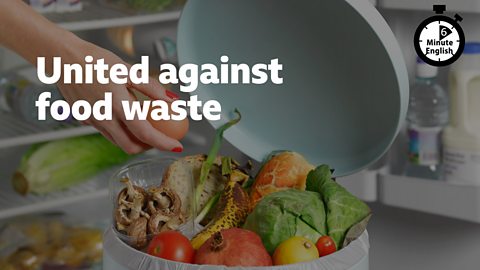
United against food waste
Episode 221229 / 16 Dec 2022
According to the UN, one third of the food we grow ends up in the rubbish bin - how can we stop this?

3D printers
Episode 221222 / 16 Dec 2022
How are 3D printers providing solutions to some of our medical problems?


Deep-sea mining: Good or bad for the planet?
Episode 221208 / 29 Nov 2022
Learn about an idea to deal with climate change that could affect marine ecosystems.

Can music mend a broken heart?
Episode 221201 / 24 Nov 2022
Is music really a cure for a broken heart?

The art of conversation
Episode 221124 / 24 Nov 2022
We discuss whether the art of conversation is being lost in the era of social media

Qatar's World Cup workers
Episode 221117 / 17 Nov 2022
Hear about the workers who built the World Cup stadiums

Controlling the weather
Episode 221110 / 10 Nov 2022
How people are trying to manipulate the weather
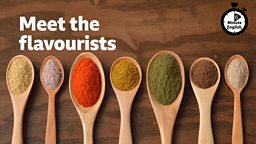

Are Halloween costumes too scary?
Episode 221027 / 25 Oct 2022
We discuss whether Halloween costumes are now too scary to be fun.

Does climate change make you anxious?
Episode 221020 / 20 Oct 2022
We discuss how extreme weather events are affecting our mental health.


Are artistic brains different?
Episode 221006 / 06 Oct 2022
We talk about Mozart, Jimi Hendrix and teach you vocabulary.


English for dating online
Episode 220922 / 22 Sep 2022
We discuss the language used for online dating

Man vs beast: Who is more efficient?
Episode 220915 / 15 Sep 2022
We discuss the advantages of the design of the human body

Are you following your dreams?
Episode 220908 / 08 Sep 2022
Hear the inspiring story of people who are doing it

Do emojis make language better?
Episode 220901 / 01 Sep 2022
Are emojis turning us into lazy writers?

Being a beauty influencer
Episode 220825 / 25 Aug 2022
Hear about women who are using social media to change attitudes to beauty

Women in the workplace
Episode 220818 / 18 Aug 2022
Hear about the career-killing tasks that are holding women back in the workplace


How pandemics end
Episode 220804 / 04 Aug 2022
We talk about previous periods in which deadly diseases went global

Confused by modern idioms?
Episode 220728 / 28 Jul 2022
Having a Groundhog Day? Keen to break the internet? Learn some modern idioms.

Which are more dangerous: sharks or humans?
Episode 220721 / 21 Jul 2022
How sharks have become an endangered species.

Climate change and animal evolution
Episode 220714 / 14 Jul 2022
Can today's animals evolve quickly enough to survive a changing climate?

Preserving traditional recipes
Episode 220707 / 07 Jul 2022
Missing your mother's cooking? We talk about traditional dishes.

Restoring trust in science
Episode 220630 / 30 Jun 2022
Astronomer Neil deGrasse Tyson's quest to highlight the difference between opinion and fact

The Manhattan Project
Episode 220623 / 23 Jun 2022
In this episode, we discuss the events leading to the creation of the first atomic bomb.

Island life: Is it paradise?
Episode 220616 / 16 Jun 2022
What is life really like in the Pacific islands?

The technology of translation
Episode 220609 / 31 May 2022
What is the relationship between translation, technology and the human brain?

Queen Elizabeth II: What is the Platinum Jubilee?
Episode 220602 / 02 Jun 2022
We talk about a very British tradition



Can VR treat fears and phobias?
Episode 220512 / 12 May 2022
Hear how tech is helping people change their behaviour for the better


Remembering Desmond Tutu
Episode 220428 / 28 Apr 2022
Deep convictions and a sense of humour - we talk about a man who helped end apartheid in South Africa.

Discoveries of the Deep Sea
Episode 220421 / 21 Apr 2022
We talk about an extreme environment which is stranger than fiction

Rhetoric: How persuasive are you?
Episode 220414 / 14 Apr 2022
We talk about an art that started with ancient Greek philosophers

Britain's love affair with coffee
Episode 220407 / 07 Apr 2022
It's not all about tea. Britons love coffee too!

Optimists vs Pessimists
Episode 220331 / 11 Mar 2022
Listen to a conversation about optimists and pessimists

The world of Agatha Christie
Episode 220324 / 24 Mar 2022
Hear a chat about the queen of murder mystery, who had her books translated into over 100 languages


Why laughter is the best medicine
Episode 220310 / 10 Mar 2022
Shouldn't we take laughter more seriously?

Is being kind good for you?
Episode 220303 / 03 Mar 2022
Listen to what scientists are saying about the benefits of giving others a helping hand
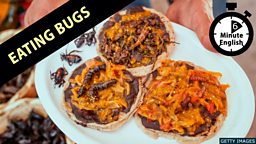
Eating bugs
Episode 220224 / 24 Feb 2022
Would you eat a cricket? How about a portion of nice crunchy ants?


Do our pets care about us?
Episode 220210 / 10 Feb 2022
We wonder what all that licking is really all about

Sleepy in South Korea
Episode 220203 / 03 Feb 2022
Life in a place where people work, study longer hours and get less sleep than anywhere else

Preparing for the Beijing Winter Olympics
Episode 220127 / 27 Jan 2022
Artificial snow, coronavirus and controversy surround the Beijing Games starting soon.

Are personalised diets the best way to be healthy?
Episode 220120 / 20 Jan 2022
Learn how microbes help digest food and have an impact in our bodies.


